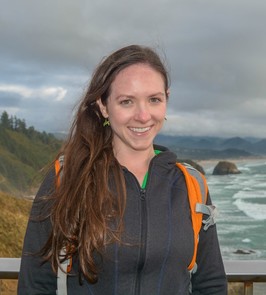|
The world is filled with mystery, questions waiting to be asked and answers to be found. As long as I can remember I have been fascinated with the natural world. With a jar and a magnifying glass, I would scour the prairie across from my house, examining every insect I could find before letting it go. I would collect plants and study their uses. My exploration taught me what native plants could be used to heal, which could be eaten, and which were dangerous. My parents have always supported my curiosity. In elementary school, they bought me my first chemistry set, microscope, and countless science textbooks. In the summers, they would send me to science camps where I could build rockets, dissect fetal pigs, put together skeletons of small birds and mammals from owl pellets, and learn how important science is to everything we do.
Growing up in a university town provided incredible opportunities like fieldtrips to the poisonous plant garden, courses on building robots, computer graphic engineering and virtual reality at the Beckman Institute for Advanced Science and Technology, sticking your arm inside a fistulated cow to feel the warm food being digested by the rumen, attending the engineering open house to watch demonstrations, and the insect fear film festival put together by the entomology department. In middle school, I joined GEMS club (Girls in Engineering, Mathematics and Science) where I started to get more interested in medicine after a trip to the morgue and learning how organs are harvested to save lives. My local Explorer scout troop specialized in veterinary medicine so while some of my peers were learning how to sew on a missing button I was practicing suturing techniques on skin models. Having difficulty deciding between human medicine and veterinary medicine I volunteered at the ambulance service and interned at the veterinary teaching hospital outside of school hours. By the time, I went to college I thought I wanted to be a veterinarian. After studying abroad in the Galapagos Islands, I fell in love with the oceans and switched my career path towards marine biology. Everything about marine biology fascinated me. Despite oceans making up the majority of our planet, our knowledge about the oceans is extremely limited. It is more difficult to send a person to the bottom of the ocean than it is into space and it is more dangerous. I thought after I graduated that I would become a marine biologist but I listened when people in my field continued to tell me how difficult it is and that there was no place for me in marine biology. One of the nicer things my advisor told me was that I had better chances of becoming a veterinarian than a professional marine biologist. Having been supported most of my life to follow my aspirations this was the first time I encountered such negativity and thought maybe everyone was right and they were trying to point me in the right direction. After a few years of trying out different paths and coming against hurdle after hurdle I found my passion again working with fish and studying physiology. I went to graduate school where I earned my Master’s degree in wildlife, fisheries, and aquaculture before working a couple more years as a faculty research assistant. In all the scientific fields, I worked in there was someone telling me that I was wrong or that I would fail. In each field, I encountered varying degrees of sexism, ageism, racism and other forms of discrimination. Throughout it all I pursued and overcame. Seeing that there would be barriers anywhere I go but I would also still have the support of my family and friends, I decided to go back to marine biology. In April 2016, I accepted a PhD position at McGill University with the Smithsonian Tropical Research Institute. This blog is my account of what it is like to be a PhD student and an aspiring marine biologist. My hope is that this blog will inspire and educate. I will not sugar coat my experiences because it is important for others to know what hurdles there are if you choose this field. Then you can make your own decision about your future instead of listening to what others believe your abilities are.
0 Comments
Leave a Reply. |
Fellows BlogLearn about a day in the life of our Fellows, from the field to the classroom as they compete their journey through graduate school. Archives
January 2020
Categories |

 RSS Feed
RSS Feed
